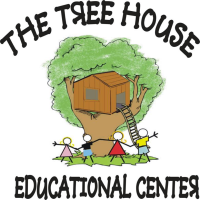Programs
Infant program
Our program for infants sets its pace around the needs and unique differences of each child. Our younger infants have a “primary” caregiver who centers her day around the schedules of those for whom she cares. This care includes basic needs for rest, diapering, love, play and other basic necessities. She as an observer with attempt to enhance the experiences and activities presented to you child to help them learn more efficiently.
Routines are the curriculum for an infant’s day. Every moment in a young child’s day offers opportunities for learning. The skilled educator catches these moments and helps each baby establish trust, discover and feel good about herself , tackle a motor task, realize the power of language, and begin to understand this strange new world from many angles. This is accomplished as each teacher keys into the verbal and nonverbal messages the child is sending.
An infant teacher, with the education and understanding of early childhood development, knows that rich verbal interactions with children help them to understand that language is a tool for identifying and expressing their needs, ideas and feelings later in life. Each of our caregivers accepts that infants developmentally need to explore the world through mouthing and touching and allow for this, viewing it is a valuable learning experience. This teacher is alert to the need for proper sanitation measures and follows them consistently and conscientiously. As the trained adult looks at the environment, she views it from a child’s eyes and creates a cozy, inviting, and stimulating place for children. She understands that what is made available for children to use depends on who the children are and what their needs are developmentally. This might necessitate frequent rotation of toys to “keep up” with a growing child, or prompt a teacher to make a toy that focuses on the child’s interest or need.
Infants need to view the world from many angles, and are allowed that experience. This includes crawling, being carried, stroller rides, outdoor play, climbing and rocking so that various perspectives are gained. Diaper changing, feeding, and other routines are viewed as vital times for communication, self discovery and socializing. They are encouraged to master feeding themselves despite the messiness that accompanies this activity. While being supportive of infants in their quest for competence, our teachers look to the parents as the best resource in working with their children. Early childhood educators view themselves as professionals with children and with parents.
The Toddler Program
In providing a program for toddlers, our teachers understand that these children learn with their whole bodies. They learn more by doing than by being told. Toddlers discover their world on a physical level, so it is expected that they will prefer walking, climbing, carrying objects, dumping, or dropping objects to sitting, picking up toys, or playing only in a designated space. These large muscle activities are the legitimate activity of toddler.
In planning for toddlers, our educators are prepared to be flexible and spontaneous. Because they are active explorers, toddlers are eager to try new things and use materials in different ways. Ours understanding teachers will go with the cues of the child and view that as learning, extending it even if it isn’t part of the day’s planned curriculum.
Toddlers are working on becoming autonomous. The educated teacher respects this and allows opportunities for the child to be responsible and to make choices. This teacher also understands why certain behaviors must be limited and set limits that are fair and consistent. Expectations for behaviors are developmentally appropriate and allow the child to be challenged yet to feel support from the teacher. Consequently, frustration is kept to a minimum and the child’s dignity and self-concept remain intact.
Our teachers, with patience, warmth and respect, redirect toddlers to help guide them toward controlling their impulses and behaviors. The teacher draws more attention to a child’s appropriate behavior than to inappropriate behavior because she understands that toddlers will act in a way that draws the most attention. Constant testing and expression of opposition are viewed as the child’s development of a healthy sense of self. The teacher accepts this and offers positively worded directions to avoid getting into power struggles. The teacher views herself as a model for how she wants the children to develop. She does his in her verbal interactions, because she understands that toddlers lack the skills to cope with frustrating situations and might act out in a physical way without her guidance.
The teacher recognizes that routine times are important moments to help children learn about themselves and others. An early childhood educator views play as valuable, and facilitates this so that children stay interested and move from simple to more complex aspects of their play. The classroom includes materials for children to engage in imaginative play, appropriate art experiences for creative exploration, various manipulative to develop cognitive and physical skills, as well as building blocks, music, and books. The environment allows for the children to choose activities and respects their need for ample time to use and reuse activities, because repeated experiences foster competence. The setting is stimulating and inviting. It offers comfortable spaces for privacy and for interacting in small groups. Children’s art is displayed proudly and respected for what it is. The children are encouraged by a knowing adult to care for the belongings and the environment in ways they can handle. The teacher creates and adapts the environment and activities to meet the children’s changing needs from day to day.
Our Curriculum (3 years old)
High Reach Learning Program
This program meets Early Reading First guidelines by providing hands-on learning and targeted instruction so that each child develops a strong foundation of essential language and early literacy skills.
This program:
- Is built on research from the National Reading Panel and the NAEYC/IRA Joint Position Statement.
- Provide Target instruction, followed by hand-on activities in oral language, phonological awareness, letter knowledge, and print knowledge.
- Expand children’s awareness of themselves and their community by using real-world places as the subject matter while teaching early learning skills.
- Supports Children learning English as a second language with ESOL strategies and vibrant, language-rich photographs.
- Provides ongoing assessment.
The preschooler Program (4-5 years old)
Beyond Centers & Circle Time/Houghton Mifflin Program
Preschoolers are usually most responsive to activities in which they are involved in a “hands on” manner. Our teachers accept that and design their classroom spaces with “learning stations” at which the children can freely choose whether to participate or not and for how long. Our quality staff rotates and adds materials frequently to maintain and extend the child’s interest. Often our teachers create their own games and materials if commercial ones do not offer the challenges needed, or do not reflect the interest of the children. Young children seem to learn best when trained teachers build on the interests and abilities of the children. This reflects the currently recognized theory that endorses non pressured, child centered activities guided by an adult with a child development base and strong problem solving skills. In such program, parents truly become partners with the professional staff. In formation or discoveries about a child’s development are mutually shared, resulting in a program tailored to the individual child.
The preschool curriculum includes activities centering on communication, science, math, social studies, music, art, large and small motor development. An enrichment program that includes field trips and visitors is offered. Dramatic play opportunities reinforce learning of practical life experiences.



